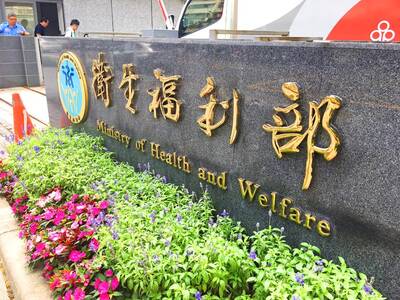Four people were detained and questioned for their suspected roles in a procurement scandal, which involved the development of mobile radar systems at the Chungshan Institute of Science and Technology (CSIST), Taiwan’s top military hardware development center, and a computer component supplier.
Public prosecutors in Taoyuan, where the institute’s headquarters are located, took into custody three staff and a manager from the Taiwanese contractor company MiTAC for questioning on Wednesday, with all four suspects detained and held incommunicado as of yesterday.
The Taoyuan District Prosecutors’ Office said the case concerned forgery of data and fabrication of evaluation results in the procurement of “Radar Vehicle for Field Operation and Air Defense,” which was undertaken by the Digital Warfare Section of the CSIST Information and Communications Research Division.
The program was commissioned in May, 2011, by the Ministry of National Defense Armaments Bureau as a pilot project to develop a vehicle-mounted mobile radar system equipped with a “radar signal generator.”
Computer manufacturer MiTAC won the contract order, with one radar vehicle unit costing about NT$70 million (US$2.22 million).
The tender called for the vehicle to be capable of carrying the radar equipment payload with great “slope-climbing ability” to prevent it from toppling over when the vehicle is advancing at 8kph up a 40o incline.
Investigators said that they uncovered forged evaluation results, adding that the vehicle could only advanced at about 6kph up a slope.
The evaluation was done at the institute’s vehicle research and testing center, and its report was presented to the Digital Warfare Section and MiTAC.
Prosecutors alleged three CSIST staff at the Digital Warfare Section responsible for the project altered the test results in collusion with the MiTAC manager, presenting the vehicle as meeting required specifications, and having passed the final approval and acceptance test for the project.
After receiving a tip-off, the Taoyuan District Prosecutors’ Office carried out an investigation and allegedly found evidence of forgery and tampered evaluation results.
They detained the three CSIST staff — section head Chou Chih-lung (周志隆), researcher Wu Chewng-hsun (吳政勳) and technician Hsiao Chen-yi (蕭振益), and MiTAC’s IT engineering section manager Wu Chun-lin (武俊麟) on Wednesday.
Although during questioning all four denied having committed the alleged violations, prosecutors have indicted them on forgery, profiteering and other offenses, while requesting the suspects be detained incommunicado to prevent possible collusion and destruction of evidence.

POLAM KOPITIAM CASE: Of the two people still in hospital, one has undergone a liver transplant and is improving, while the other is being evaluated for a liver transplant A fourth person has died from bongkrek acid poisoning linked to the Polam Kopitiam (寶林茶室) restaurant in Taipei’s Far Eastern Sogo Xinyi A13 Department Store, the Ministry of Health and Welfare said yesterday, as two other people remain seriously ill in hospital. The first death was reported on March 24. The man had been 39 years old and had eaten at the restaurant on March 22. As more cases of suspected food poisoning involving people who had eaten at the restaurant were reported by hospitals on March 26, the ministry and the Taipei Department of Health launched an investigation. The Food and

A fourth person has died in a food poisoning outbreak linked to the Xinyi (信義) branch of Malaysian restaurant chain Polam Kopitiam (寶林茶室) in Taipei, Deputy Minister of Health and Welfare Victor Wang (王必勝) said on Monday. It was the second fatality in three days, after another was announced on Saturday. The 40-year-old woman experienced multiple organ failure in the early hours on Monday, and the family decided not to undergo emergency resuscitation, Wang said. She initially showed signs of improvement after seeking medical treatment for nausea, vomiting and diarrhea, but her condition worsened due to an infection, he said. Two others who

MEDICAL: The bills would also upgrade the status of the Ethical Guidelines Governing the Research of Human Embryos and Embryonic Stem Cell Research to law The Executive Yuan yesterday approved two bills to govern regenerative medicine that aim to boost development of the field. Taiwan would reach an important milestone in regenerative medicine development with passage of the regenerative medicine act and the regenerative medicine preparations ordinance, which would allow studies to proceed and treatments to be developed, Deputy Minister of Health and Welfare Victor Wang (王必勝) told reporters at a news conference after a Cabinet meeting. Regenerative treatments have been used for several conditions, including cancer — by regenerating blood cells — and restoring joint function in soft tissue, Wang said. The draft legislation requires regenerative treatments

Taiwanese should be mindful when visiting China, as Beijing in July is likely to tighten the implementation of policies on national security following the introduction of two regulations, a researcher said on Saturday. China on Friday unveiled the regulations governing the law enforcement and judicial activities of national security agencies. They would help crack down on “illegal” and “criminal” activities that Beijing considers to be endangering national security, according to reports by China’s state media. The definition of what constitutes a national security threat in China is vague, Taiwan Thinktank researcher Wu Se-chih (吳瑟致) said. The two procedural regulations are to provide Chinese